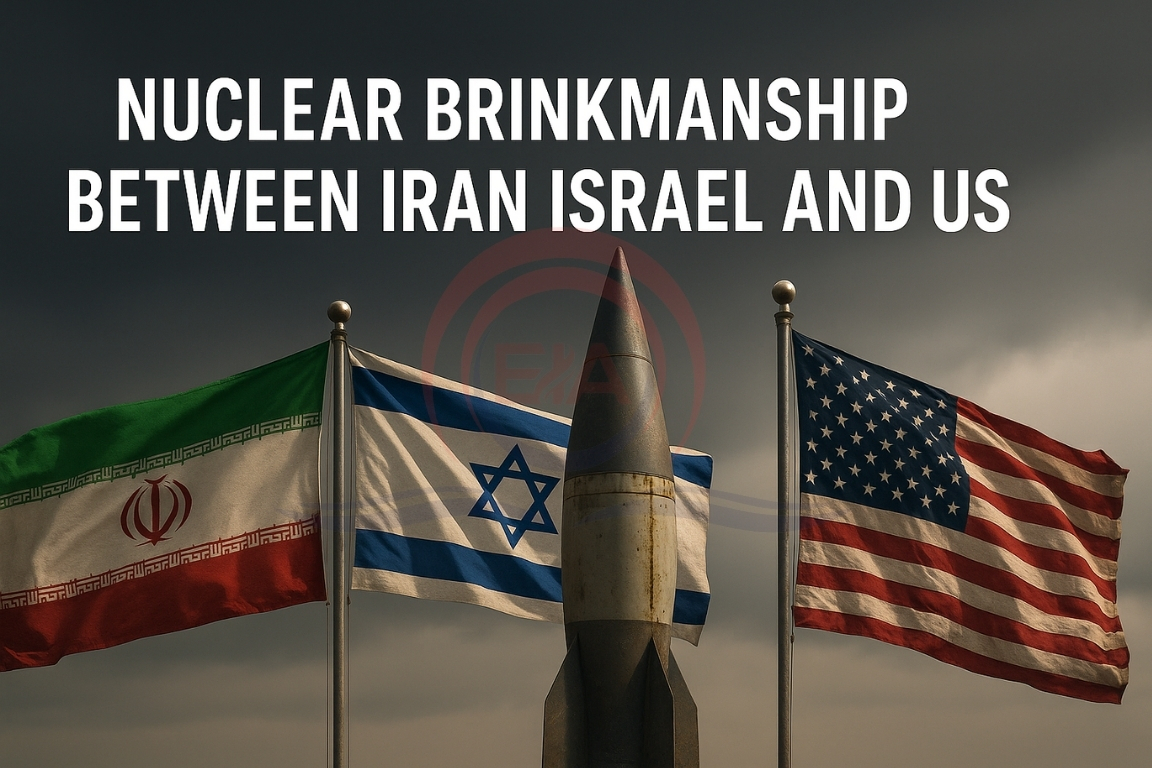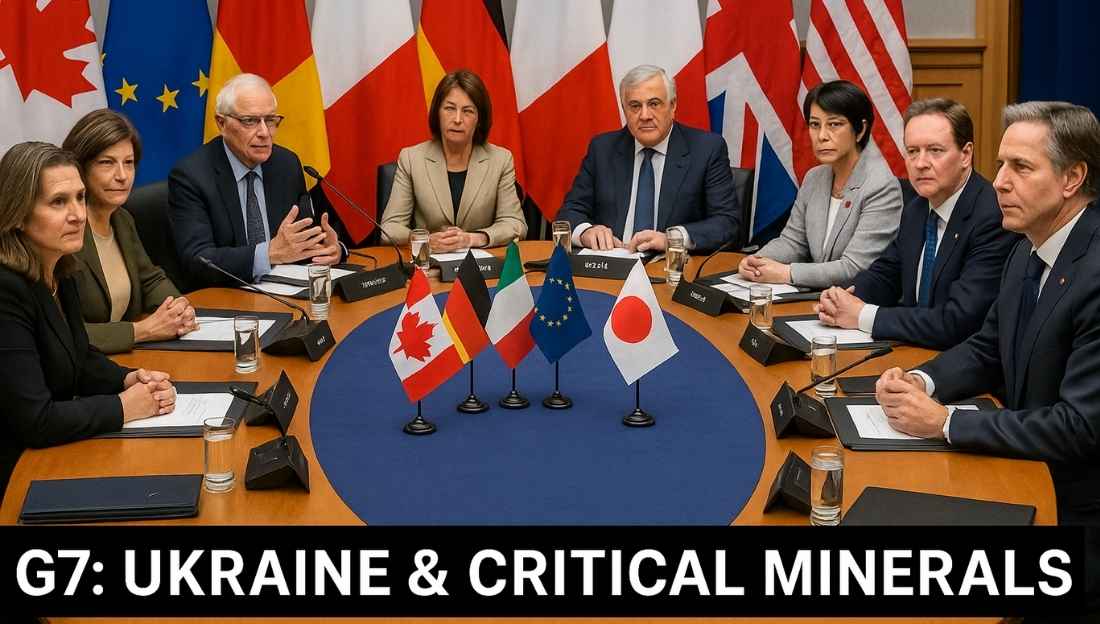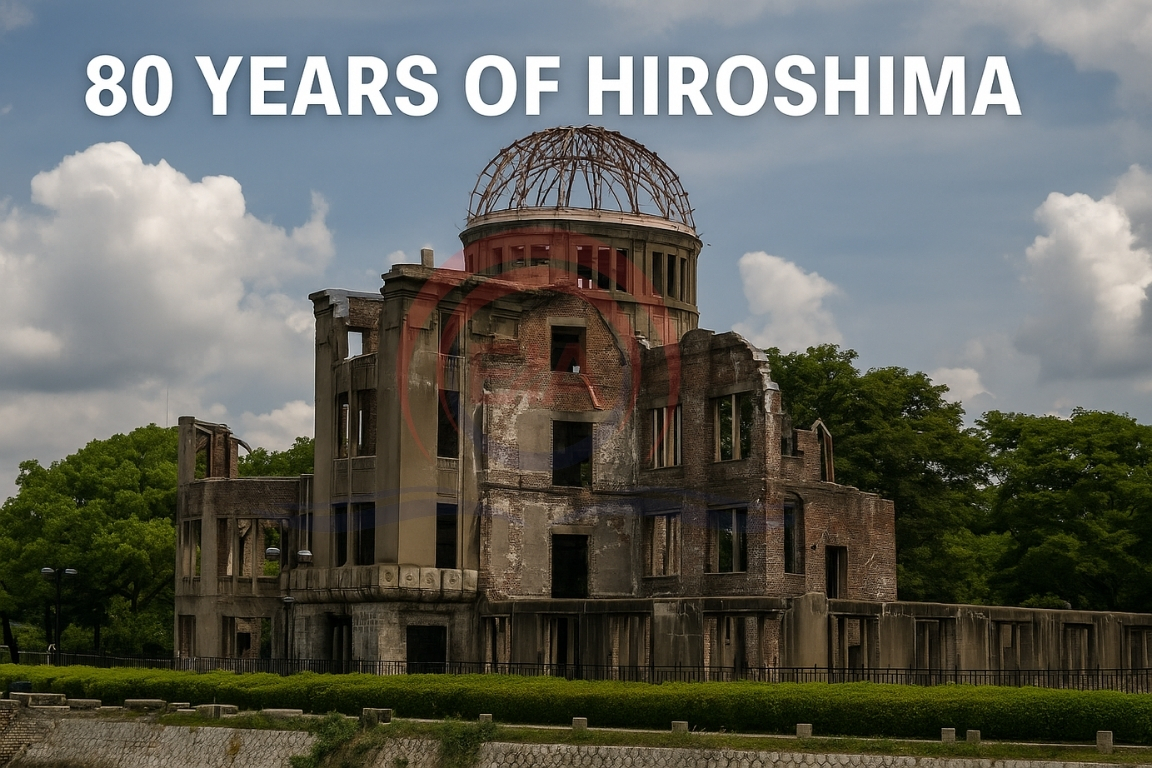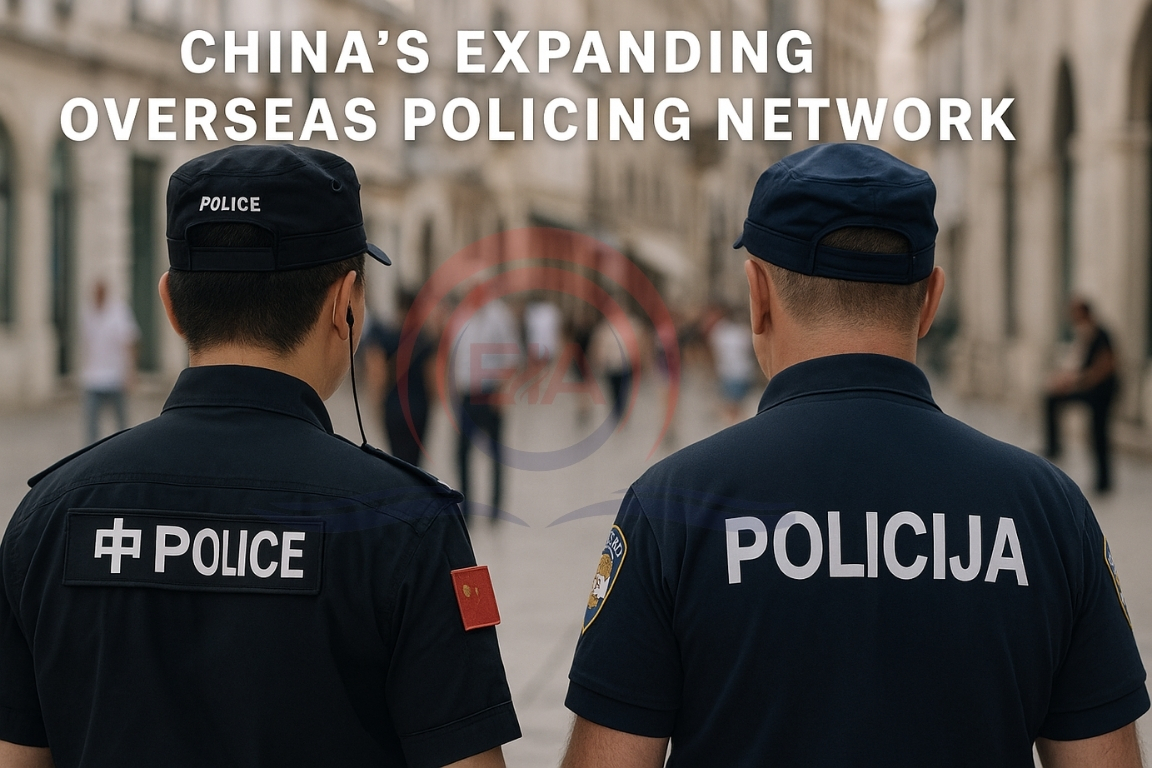After days of heavy military exchanges, Israel and Iran have agreed to a ceasefire. However, concerns have grown over nuclear tensions as Israel reportedly targeted Iran’s nuclear sites with support from the U.S.
Background of the Crisis
- A 12-day-long exchange of missile strikes and air attacks between Iran and Israel recently took place.
- Following this, both countries agreed to a ceasefire, but the conflict raised global alarms over possible nuclear escalation.
- Israel’s actions included pre-emptive attacks on Iranian nuclear facilities, with U.S. backing.
Issues in the Current Crisis
- Iran is a signatory of the Nuclear Non-Proliferation Treaty (NPT) and has allowed international inspection of its nuclear program.
- However, recent attacks may have damaged Iran’s uranium enrichment facilities, increasing the risk of nuclear retaliation.
- Iran had earlier agreed to the Joint Comprehensive Plan of Action (JCPOA) in 2015 with the P5+1 countries, including the U.S.
- The deal collapsed after the U.S. withdrew from the JCPOA under President Trump, leading to renewed tensions.
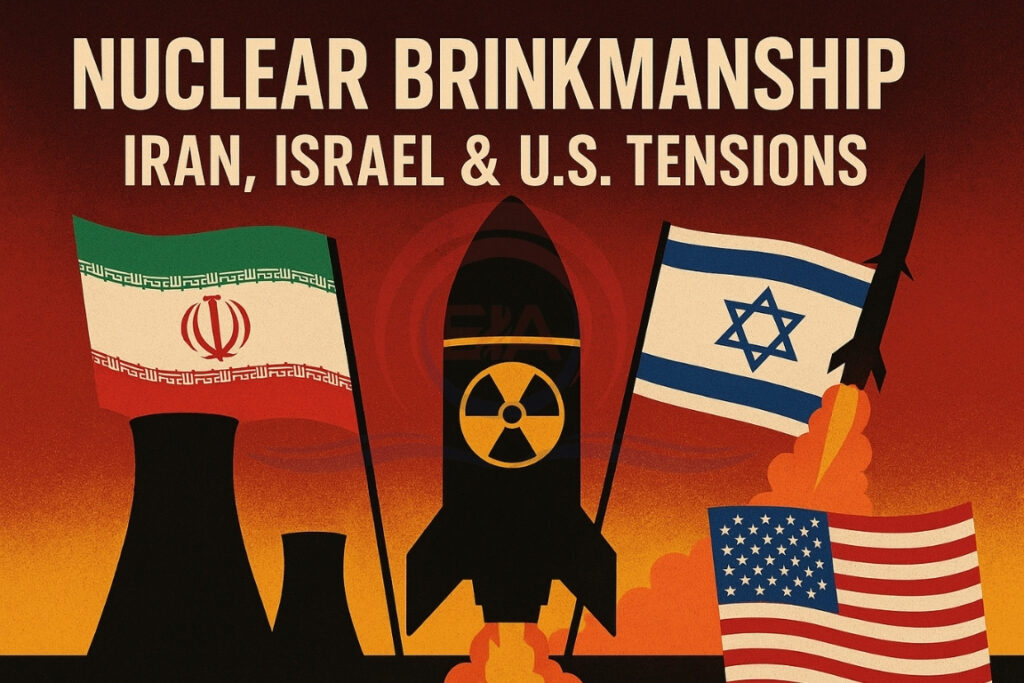
Concerns Over Nuclear Escalation
- Israel’s refusal to sign the NPT or allow inspections raises fears of double standards and nuclear hypocrisy.
- Iran’s internal debate on quitting the NPT and building nuclear weapons is gaining traction in response to external threats.
- These actions may lead to regional instability and nuclear arms race, especially with Russia’s involvement in Ukraine.
Global Implications
- This situation highlights the failure of global nuclear norms, where powerful nations act without accountability.
- There is a need for global nuclear disarmament, especially among declared and undeclared nuclear powers.
BACKGROUND OF THE CONFLICT
Iran is a Shia-majority Islamic Republic, and Israel is a Jewish state. They do not share diplomatic ties and are long-time rivals in West Asia.
- Iran supports groups like Hezbollah (Lebanon) and Hamas (Palestine) that oppose Israel.
- Israel views Iran as a major security threat, especially due to Iran’s nuclear program.
Issues in the Conflict
Iran’s Nuclear Program:
- Iran is enriching uranium, which could be used to develop nuclear weapons.
- Israel fears Iran might make an atomic bomb, threatening its existence.
- In 2015, Iran signed the Joint Comprehensive Plan of Action (JCPOA) with the P5+1 countries (US, UK, Russia, China, France + Germany), agreeing to limit its nuclear activities.
- In 2018, U.S. under Trump withdrew from JCPOA, and Iran resumed nuclear activities.
Israel’s Pre-emptive Strikes:
- Israel has allegedly carried out airstrikes on Iranian nuclear and military sites inside Iran and Syria.
- In April 2025, Israel launched airstrikes on Iran’s uranium enrichment sites, leading to severe tensions.
Iran’s Response:
- Iran launched missile and drone attacks targeting Israeli cities and military bases.
- The exchange of fire lasted over 12 days, raising fears of a wider war in West Asia.
International Reactions
- The United States supported Israel, providing diplomatic and possibly military support.
- European countries, Russia, and China largely stayed silent or avoided intervention.
- A ceasefire was declared in June 2025, after rising global concerns over nuclear escalation.
Current Situation
- Iran’s nuclear facilities are believed to be damaged.
- Israel remains the only nuclear-armed country in West Asia.
- Iran may rethink its commitment to the Nuclear Non-Proliferation Treaty (NPT).
Global Concerns
- Fear of nuclear war or accidental conflict.
- Possibility of proxy wars intensifying in Lebanon, Syria, Iraq, and Yemen.
- Risk of empowering terrorist groups like ISIS and al-Qaeda due to instability.
India’s Position
- India has not taken sides and called for peace and de-escalation.
- With citizens in both countries, India launched Operation Sindhu to evacuate over 2,800 Indians from Iran and Israel in June 2025.
Conclusion:
The recent developments mark a dangerous phase in nuclear diplomacy. The world must push for restraint, accountability, and renewed global commitment to peace to avoid repeating the darkest moments of the Cold War.


